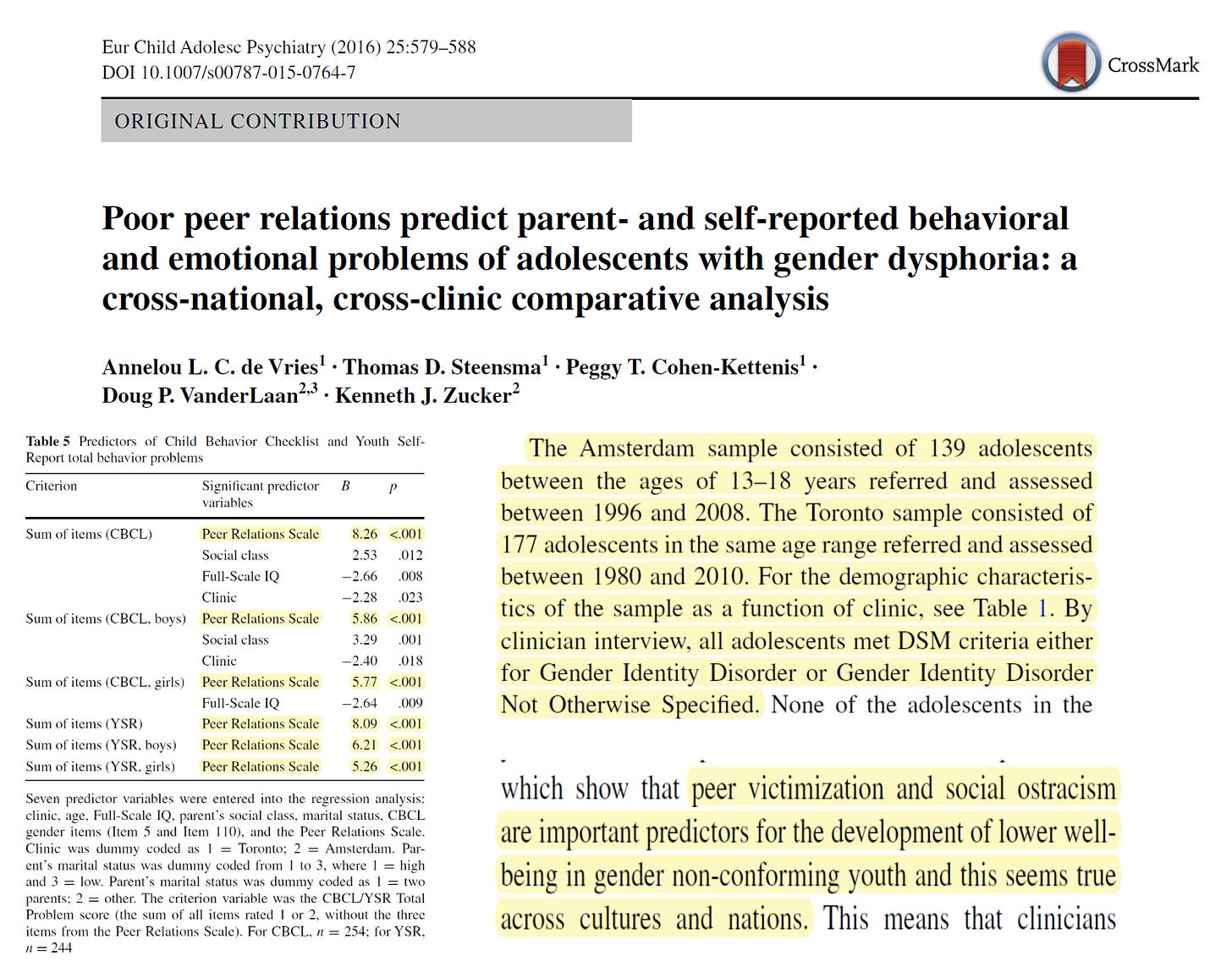Poor Peer Relations are a Key Determinant of Gender Dysphoria in Adolescents
Parents Must Pay Attention to Signs of Victimization and Ostracism
By Peter A. McCullough, MD, MPH
Parents are watching the nightly news in horror as the transgender epidemic is playing out across K-12 schools in America. Many parents have asked me what they can do to avoid the nightmare of a “gender journey” in their sons and daughters. We can learn from other countries where the mental contagion of gender fluidity appeared to flare a few years earlier.
de Vries et al published a report on children and adolescents with gender dysphoria in a comparative analysis between two gender identity clinics in Toronto, Ontario, Canada and Amsterdam, the Netherlands. The Dutch clinic was first established in 1987 at the University Medical Center Utrecht in Utrecht. It moved to the VU University Medical Centre, Amsterdam in 2002. The Toronto clinic was established in 1975 and is now the Centre for Addiction and Mental Health. Since the year 2000, both clinics have recommended puberty suppression treatment via gonadotropin-releasing hormone agonists (GnRHa) [26] for about two-thirds of the adolescents [27, 28]. However, in the present study, none of the adolescents from both clinics had started this treatment at the time of the baseline assessment.

The authors found that peer relations and perceived victimization were highly associated with lower well being and gender dysphoria. This association could not be adjusted away in detailed modeling procedures.
This is an important study for families. It is worthwhile to check for cues of poor peer relations and signs of victimization. Parents and counselors can intercept children early and hopefully avoid matriculation at transgender clinics. The best treatment for gender dysphoria is normal puberty and avoidance of the ghoulish transexual journey that is a source of so much angst among our youth.
Please subscribe to Courageous Discourse Substack for evidence-based discussions of contemporary topics with graphical abstracts that can be easily transferred into slides or onto your phone. Support us in helping you grow stronger every day.





Thank you, Dr. McCullough
I so agree. Excellent.